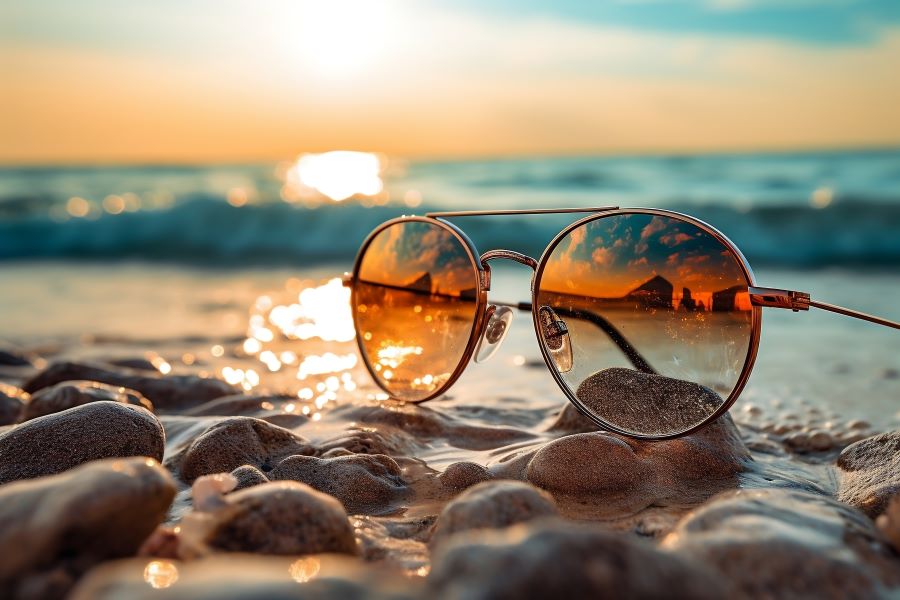Turn vacations from a temporary escape into a powerful tool for well-being
Are you familiar with that post-vacation afterglow? The kind where you return to work feeling recharged, brimming with new ideas, and more motivated than ever? Surprisingly, stepping away from your desk and embracing relaxation isn’t just enjoyable—it’s scientifically proven to be beneficial. Studies show that taking time off combats burnout, unleashes creativity, melts away stress, sharpens decision-making, and uplifts your overall mood. It turns out that disconnecting from work can actually improve your professional performance!
But how can you preserve that uncluttered state of mind and heightened creativity, even after your holiday tan fades and your suitcase is tucked away? As we gear up for spring break and summer getaways, let’s dive into practical strategies to harness the wellness benefits of your much-needed time off and minimize the post-vacation hangover.
Embracing Anticipation: Pre-Vacation Planning Boosts Well-being
Before you jet off to sun-kissed beaches or tranquil mountain retreats, consider the magic in planning and anticipation. Researching and envisioning your getaway, from sifting through and savoring the idea of local cuisine to visualizing scenic sites equipped with insights you’ve gathered, can amplify your excitement and enjoyment. These mental rehearsals enrich your actual experiences and kick off the joy of vacation long before you set foot in your destination.
Pre-Vacation Planning Minimizes Friction
Moreover, thorough vacation planning ensures a smooth, hassle-free experience. By ironing out the logistics – from budgeting and lodging to pre-booking activities and securing transport – you can fully immerse yourself in the experience rather than being distracted by last-minute chaos, disagreements, nagging worries, or disappointment over missed opportunities.
The thrill of looking forward to something – a new place, experience, or challenge – is a significant part of life’s joy. So go ahead and set that breathtaking beach as your phone’s wallpaper and count down the days with an app- studies suggest the joyful expectation of having something to look forward boosts your mood and lowers your stress!
Crafting Your Ideal Vacation: Personalization Over Perfection
When it comes to vacationing, the most rejuvenating experiences stem from authenticity. Don’t get caught up in the trap of expensive or far-flung destinations if they don’t align with your interests or budget. Sometimes, the charm of a local getaway or a neighboring state’s hidden gem can surprise you with its simplicity and warmth.
Instead of breaking the bank for a social-media-perfect trip or trying to outdo someone else’s lavish retreat, focus on what is genuinely refreshing and enjoyable for you. Ask yourself, what fills your cup? Is it the adrenaline rush of adventure sports, the serene simplicity of a camping getaway, or the novelty of a cross-country road trip? Design your vacation around these personal joys, not to live up to someone else’s vacation fantasy.
Embracing New Experiences Reduces Stress
Vacations offer the perfect opportunity to venture outside your comfort zone. Doing so invigorates your senses and helps keep you in the present moment by disrupting your routine and disengaging you from autopilot. This shift from the familiar refreshes your mind and alleviates stress by distancing you from habits and environments associated with stress. So, to fully reap the benefits, you need to set boundaries by disconnecting from work and resisting the temptation to peek at emails or periodically check-in.
Novelty-Seeking is a Natural Mood Booster
Our brains crave new experiences; research indicates that new or exciting experiences trigger our brains to release dopamine, a feel-good neurotransmitter that naturally elevates your mood. So, as you plan your next vacation, consider incorporating elements that are new to you. It might be zip-lining through a forest, taking a cooking class in a different cuisine, or simply exploring a hidden gem in a city. These unique adventures provide a sense of wonder and amplify your enjoyment!
Prepare for a Soft Landing
Does the thought of fully disengaging from work make you break out in a cold sweat? Here’s where the final step comes in: prepare yourself for a smooth return as part of your vacation-planning strategy.
This can include stocking up on groceries, tidying up your home, and coordinating kids’ transportation to activities.
At work, this could be scheduling a buffer day to settle back into a routine before returning to the office or arranging your work schedule so you can start with lighter, more enjoyable tasks before gradually ramping up to the more demanding ones.
Organizing a gradual reentry allows you to be fully present during your time off, knowing you can ease yourself back into reality.
The Art of Vacationing: Final Thoughts
The art of vacationing isn’t about the time you spend away; it’s about integrating the concept of rest and rejuvenation into your regular routine. Rather than viewing vacations as a last-resort effort to prevent burnout, consider them an ongoing, vital part of your mental and emotional wellness.
By leaning into anticipation, planning for what rejuvenates you, embracing new experiences, and ensuring a seamless transition back to work, you can turn your vacation into more than a temporary escape – it becomes a powerful tool for enduring well-being. So, embrace your next holiday as a valuable investment in your overall health and happiness!

